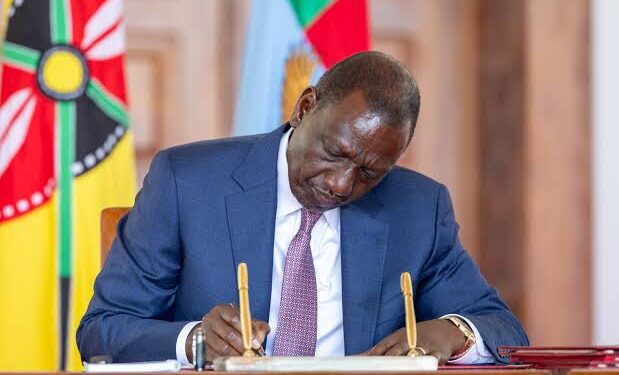By Emmanuel Nduka
Kenya’s Finance Bill 2025, recently presented in Parliament, outlines several proposed amendments to the Income Tax Act.
According to the provisions, these changes aim to modernize outdated provisions, enhance compliance, and broaden the tax base, particularly in the digital space.
In it, both individuals and businesses are expected to feel the effects of the reforms, which touch on travel allowances, pensions, digital income, investment deductions, and more.
Here are the 10 proposed changes:
1. Subsistence and travel Allowances
As amended, the bill proposes raising the daily tax-free limit for private sector employees on official duty outside their normal workplace from KSh 2,000 to KSh 10,000. This covers travel, subsistence, and entertainment allowances.
2. Gender-neutral pension provisions
In pension laws, the term “husband” will be replaced with “spouse” to promote gender equality, ensuring both men and women are equally recognized in pension benefits and contributions.
3. Pension payment exemptions
To align with the 2024 amendments exempting pension payments from tax, the bill removes redundant clauses and confirms that both lump-sum and monthly pension payments are tax-exempt. It also clarifies that gratuity payments from public and private schemes are fully exempt from taxation.
4. Withholding tax
Although withholding tax on supplies to public entities and scrap sales was introduced in 2024, the Income Tax Act wasn’t updated to reflect it. The bill corrects this by officially including these categories under withholding tax provisions.
5. Significant Economic Presence (SEP) tax
The bill seeks to expand the SEP tax beyond digital marketplaces to include all online income streams. It also removes the KSh 5 million threshold for non-residents, aiming to increase compliance and prevent tax avoidance in the digital sector.
6. Minimum top-up tax
While the Minimum Top-Up Tax was introduced last year, its due date wasn’t specified. This bill addresses that by setting the payment deadline as the end of the fourth month after the end of a company’s accounting period.
7. Investment deductions
Deductions will also apply to costs of building public sports facilities. Accelerated deductions, however, will be limited to licensed operators within Special Economic Zones to prevent misuse. Businesses will be allowed to deduct 100% of costs for low-value items like tools, utensils, and linen in the first year.
8. Mortgage interest relief
Tax relief of up to KSh 360,000 annually on mortgage interest will now apply to loans taken for constructing residential homes, in addition to home purchases.
9. Shipping business taxation
Income earned by non-resident shipowners will be subject to withholding tax, which must be remitted within five working days after the amount is withheld.
10. PAYE compliance
To prevent over taxation, employers will now be required to automatically apply all relevant tax reliefs and exemptions when calculating employees’ PAYE. The bill also removes the mandate to issue physical PAYE certificates, supporting a move toward digital tax administration.
Additional Proposal: Fringe Benefit Tax
Separate from the main 10 changes, the bill proposes increasing the Fringe Benefit Tax (FBT) from 9% to 30%—bringing it in line with corporate tax rates. This fixed rate would apply to non-cash perks like company cars and employee loans, replacing the current method based on prevailing market lending rates.
Credit: TUKO News



































